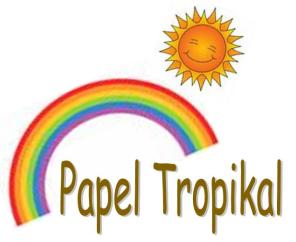
FOR
COMPOSITION: salago and abaca fibers
SIZE: 10 x 14 inches
MATERIAL: Smooth on one side, textured on the other
COLOR: Natural
PRICE: Php 20 per sheet
MINIMUM ORDER : sixteen (16) sheets (for orders within the
USES: personal cards, stationery, scrapbook material, invitations, other small handcrafted items.
PRODUCERS: Indigent mountain people trained by nuns
SHIPPING COST WITHIN THE
P 120 (below three kilos) to be shouldered by buyer
COURIERS: Aboitiz 2GO and JRS Express
NOTE:
Seller agrees to combination orders so buyer can save on shipping cost.
Kindly give seller lead time of at least ten(10) days to comply with orders. Seller has a regular job during weekdays and may be able to visit the paper production center only on weekends.
PAYMENT OPTIONS:
Banco De Oro
RCBC
Union Bank
Smart Money
Globe G-Cash
FOR INQUIRIES:
Please email papeltropical@yahoo.com or text me at
09186040542 or 09052830151. I welcome inquiries.
buyandsellplus site:
http://www.buyandsellplus.com/itempage.php?itemid=123511
Abaca fiber , known worldwide as Manila hemp, is obtained from the leafsheath of the abaca, Musa textilis Nee and is considered as the strongest among natural fibers. The length of the fiber varies from three to nine feet or more, depending on the height of the plant and the age of the leafsheath. The color of the fiber ranges from ivory white to light and dark brown.
The Abaca plant is indigenous to the
Abacá, from Spanish "abacá", is of great economic importance, being harvested for its fibre, called Manila hemp, extracted from the large, oblong leaves and stems. On average, the plant grows about 20 feet (6 meters) tall. The fibre is used for making twines and ropes. The plant's name is sometimes spelt Abaká.
Salago is abundant in the


2 comments:
Hi!
I'm Ms. Bethanie Nacino and I'm from Baguio. I have searched every bookstore here and Manila but I couldn't find Salago Papers. I stumbled upon your website, and you don't know how happy I am to have found your site.
If I buy 130 pieces, how much will it be? Will it still be sold for 20 pesos or lower, since it's a wholesale.
Can you send me a close up photo of your product?
I want Salago pulp with salago strip. Just the plain once since I'm going to use it for my wedding invitation.
Your reply is truly appreciated.
Thanks in advance!
I can't cpntact the numbers you've provided and I think your email is no longer existing.
Post a Comment